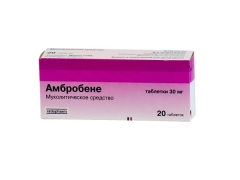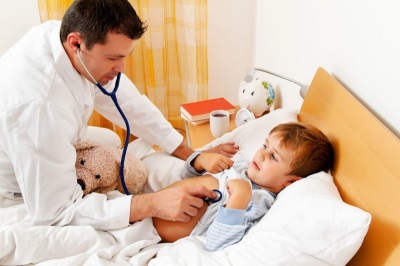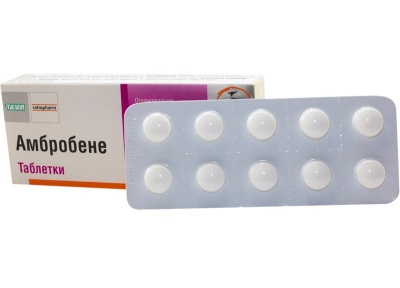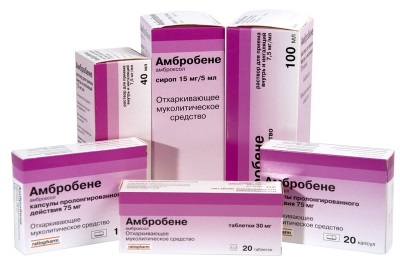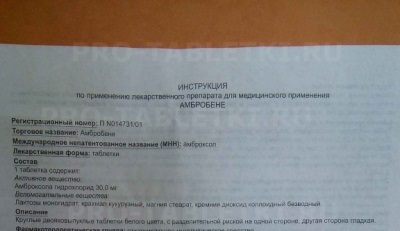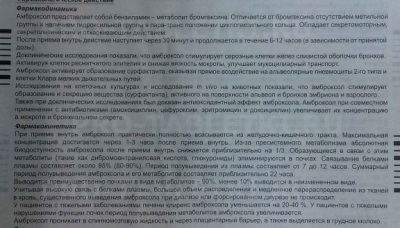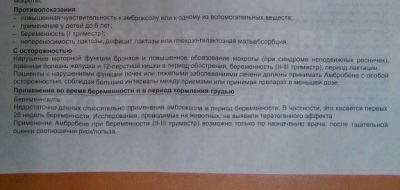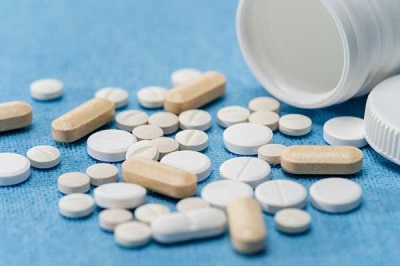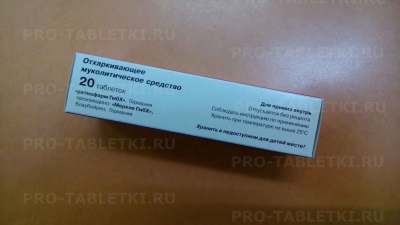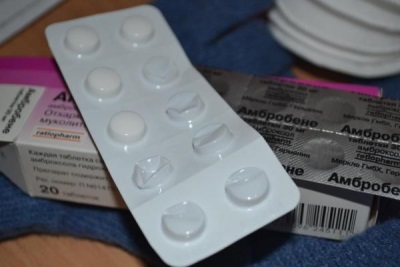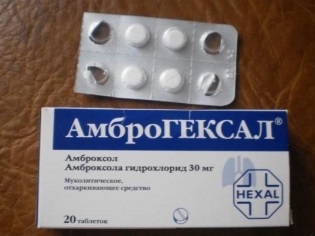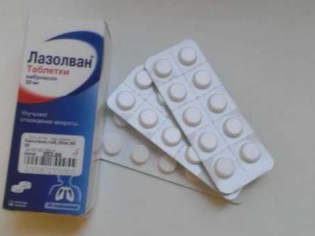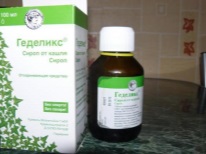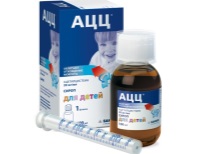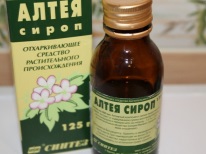Tablets "Ambrobene" for children: instructions for use
In case of bronchitis, pneumonia or other diseases with a strong cough and viscous sputum, doctors often prescribe the German drug Ambrobene. It is represented by various dosage forms, among which there are tablets. But is it possible to treat Ambrobene tablets with a small child and at what dose can they be used in childhood?
Release form
The tablet form of Ambrobene is represented by round pills convex on both sides, on which there is a risk for possible separation. These white tablets are packaged in blisters of 10 pieces, and one pack includes 20 or 50 tablets.
In addition to tablets, the drug is released:
Composition
The active substance in Ambrobene is ambroxol hydrochloride. Its content in each tablet medication - 30 mg. Additionally, the tablet form contains substances that ensure the density and preservation of the form - magnesium stearate, colloidal silicon dioxide, starch obtained from corn and lactose monohydrate.
Operating principle
Ambroxol has the ability to activate sputum production and improve its separation. The medicine taken inside begins to act in half an hour. The duration of the therapeutic effect is from 6 to 12 hours depending on the dosage. Once in the bronchial mucosa, Ambrobene affects the glandular cells and ciliated epithelium. The drug reduces the viscosity of secretions secreted by the bronchi, which contributes to coughing up mucus.
Ambroxol also has the ability to activate the production of surfactant. The compound directly affects the respiratory tract cells responsible for the production of this important respiratory substance. Studies have shown some antioxidant activity Ambrobene.
Indications
Instructions for use recommends Ambrobene treatment as in acute diseases of the respiratory system, and in chronic pathologies of the lungs and bronchi.
The drug is prescribed for:
- SARS.
- Bronchitis
- Bronchiectasis.
- Pneumonia.
- Obstructive pulmonary disease.
At what age is it allowed to take?
Ambrobene tablets are not prescribed to children who are not yet six years old. For babies, a syrup or solution is considered a more appropriate form of medication, which can be administered under the supervision of a physician from birth.
Contraindications
Ambrobene treatment is not recommended:
- If the child has an individual intolerance to ambroxol or another component of the tablets.
- If glucose-galactose malabsorption is detected or there are problems with the digestion of lactose.
Children with peptic ulcer, liver disease, or kidney disease should not drink Ambrobene without consulting a doctor. For such health problems, the drug is prescribed carefully and in a lower dosage.
Side effects
The body of the child can respond to Ambroxol with such negative symptoms:
- Weakness
- Fever
- Headaches
- Nausea
- Skin rash
- Vomit
- Dyspnea
- Itchy skin
- Abdominal pain
- Constipation
- Dry mouth
- Diarrhea
- Dysuria
- Urticaria
- Abundant nasal discharge
Instructions for use and dosage
- Ambrobene tablets need to swallow whole, and chewing medication is not recommended. After drinking a pill after a meal, you should drink it with liquid in a large volume.
- For children 6–12 years old, the single dosage of the Ambrobene tablet formulation is half the tablet. The medicine is given twice a day, but in some cases it is prescribed three times a dose.
- At the age of more than 12 years old, a single dose of the agent is increased to a whole pill taken three times a day. If after 2-3 days from the start of therapy, the effectiveness of the drug is too low, it is possible to increase the single dose to 2 tablets. With good effect, the medicine continues to be given 1 tablet twice a day.
- How much to take Ambrobene, the doctor determines for each small patient individually. If the mother began to give the medicine without referring to a pediatrician, the treatment should not last more than 4-5 days.
- For a more pronounced mucolytic action, attention should be paid to the child's drinking regimen, offering him more drink.
Overdose
Exceeding the recommended dose Ambrobene has no toxic effect, but can cause diarrhea or nervous excitement. If you drink a lot of pills, it leads to vomiting, excessive saliva, low blood pressure, severe nausea. For treatment should immediately (within 1-2 hours after drinking the tablets) cause vomiting and hold a gastric lavage.
Interaction with other drugs
- If Ambrobene is prescribed along with medications that inhibit the cough reflex, this will lead to the stagnation of mucus in the bronchi.
- If the patient receives Amoxicillin, Doxycycline, Erythromycin or Cefuroxime, then prescribing Ambrobene will increase the concentration of such antibiotics in sputum.
Terms of sale
To get Ambrobene tablets, you do not need to show a doctor’s prescription at the pharmacy. On average, the price of 20 tablets of this drug is 140-150 rubles.
Storage conditions and shelf life
For storage Ambrobene requires a dry place in which the pills can not get a small child. The optimum storage temperature is less than + 25 ° C. From the date of issue the drug is valid for 5 years.
Reviews
About the treatment of cough in children with Ambrobene parents respond mostly well. In most children, the remedy causes the expected therapeutic effect, helping to cough up sputum. Plus drugs called its availability in pharmacies, low cost, ease of dosing. Side effects are rarely reported since most small patients tolerate Ambrobene without any problems.
Analogs
Instead of Ambrobene, you can use other drugs that include Ambroxol, for example, Lasolvan, Ambrohexal, Bronchus, Ambroxol, Flamed or medox. Also, to replace drugs with ambroxol, the doctor may recommend other cough-efficient remedies, among which Althea Syrup, ACC, Gadelix, FluditecProspan Mukaltin and Bronhikum S.
What Dr. Komarovsky thinks about expectorant drugs and in what cases they can be used, see the next video.
